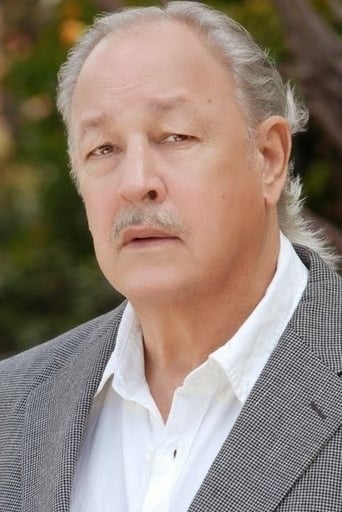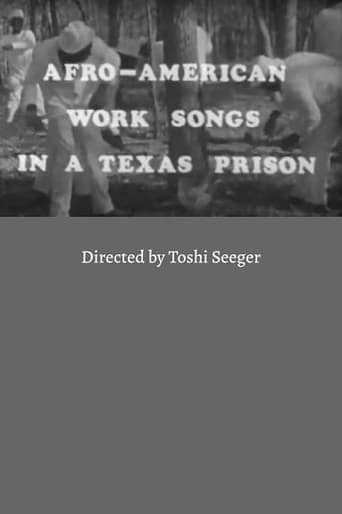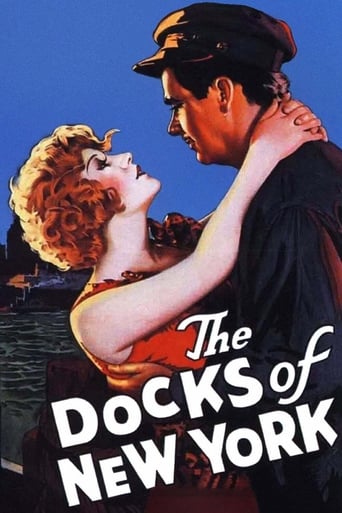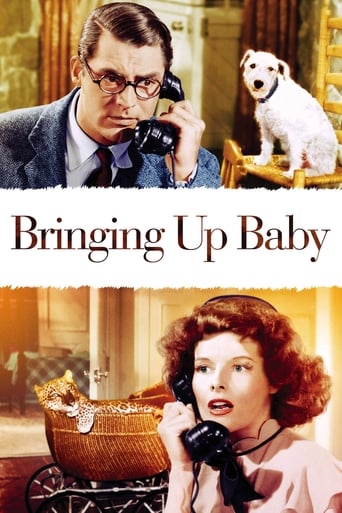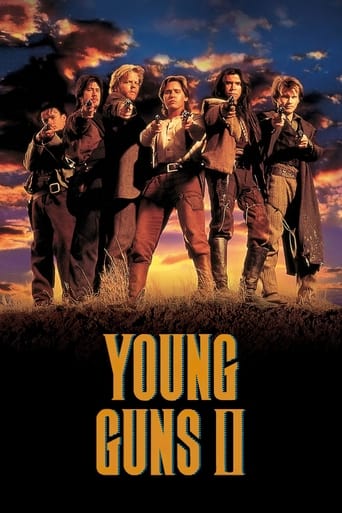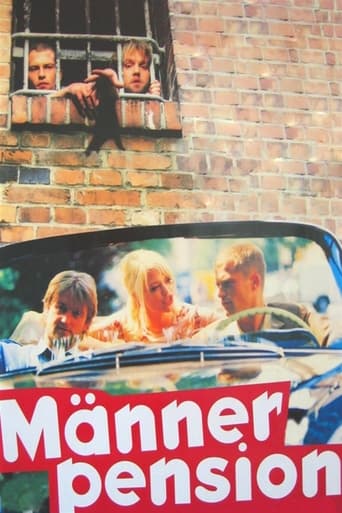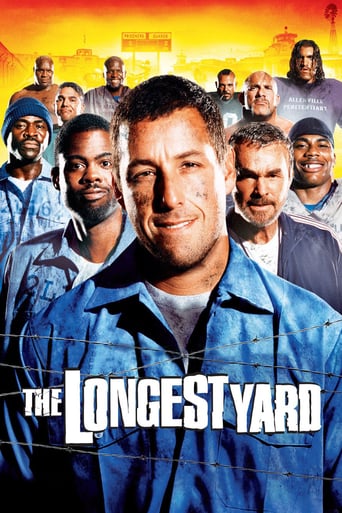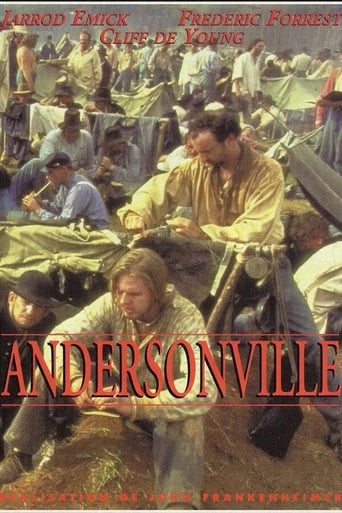
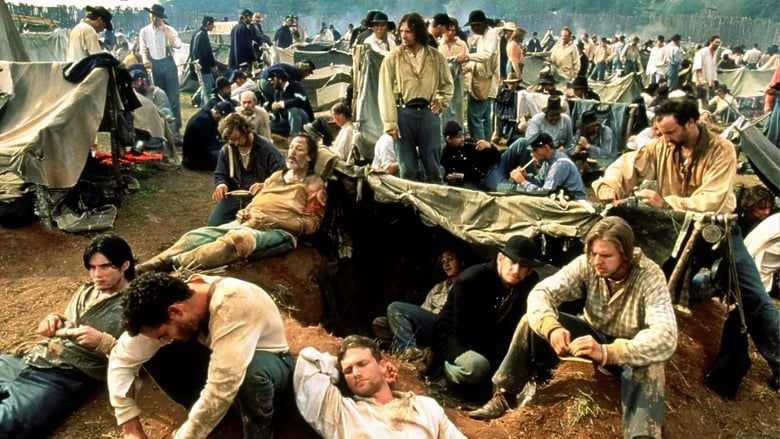
Andersonville (1996)
This lengthy docudrama records the harrowing conditions at the Confederacy's most notorious prisoner-of-war camp. The drama unfolds through the eyes of a company of Union soldiers captured at the Battle of Cold Harbor, VA, in June 1864, and shipped to the camp in southern Georgia. A private, Josiah Day, and his sergeant try to hold their company together in the face of squalid living conditions, inhumane punishments, and a gang of predatory fellow prisoners called the Raiders.
Watch Trailer
Cast


Similar titles
Reviews
"Andersonville" is a TV film which premiered on Turner Network Television in 1996. It stars William H. Macy, (Fargo) Thomas F. Wilson, (Back to the Future) Cliff De Young, (The Craft) William Sanderson, (Blade Runner) and Fredrick Forest. (Apocalypse Now) It is produced by Ted Turner, (Gods and Generals) directed by John Frankenheimer (Ronin) and written by David W. Rintels. (Not Without My Daughter)It is about a small group of United States soldiers who get captured by rebels during The War of the Rebellion in 1864 at the Battle of Cold Harbor in Virginia. The kidnapped U.S. troops are taken via train to an enemy prison called "Camp Sumter", but nicknamed "Andersonville" by the inhabitants because it is located by a small railroad depot called "Anderson".Located in rural Georgia, thousands of members of the Federal Military suffer and die daily due to an acute absence of bread, vegetables, fruit, blankets, hammers, nails, wood, medicine, personal security, the attention of decent doctors and surgical instruments. There is also an overwhelming amount of disapproving overpopulated areas, meagerly clean environments and a great need of palatable water.The facility is run by Henry Wirz - A doctor-turned-secesh caption originally from Switzerland who migrated to the States in his early adult years after college (Specifically, Kentucky and later Louisiana) where he had his own medical practice. He joined up with the traitors in 1861 and was later injured in his right arm at the battle of Seven Pines. After the affliction, he was put in charge of the affairs at Andersonville. Perhaps due to his supposed previous pharmaceutical training he acquired in his native country.While Wirz's staff of guards are certainly dangerous individuals (who are always looking for a legal excuse to shoot Unionists so they can win a thirty-day furlough, which is the prize for killing a Lincolnite as long as it's within the guidelines of the law) the primary villains of the movie are a vicious, unmerciful, armed and violent gang of New York inmates called "Raiders".They were bounty jumpers before their imprisonment. (A bounty jumper was someone who joined the Nationals, collected payment while still in basic training, deserted, rejoined the Army of the Potomac in another region, got more money, abandoned their post again, only to volunteer once more and repeat the process until caught either by Uncle Sam or the rivals, if their misbehaving ways are discovered at all.)After establishing themselves at Camp Sumter, this pack of wild bullies eagerly and physically attack groups of new arrivals in an attempt to steal what belongings they have with them so they can increase their own survival in the desolate penitentiary. The authorities make no effort to stop this band of cutthroats, having no care for the well being of the Billy Yank's. The Johnny Reb's will even trade with the posse of infamous bandits.Despite what some audience members might think, this is not a pro-Union/anti- Confederate motion picture. While I do think there were a lot of things Wirz could have done, some things were beyond his control. The intense suffering that went on at Andersonville was not done on purpose by the Confederacy. It was a lack of resources that caused the hardships. There is a scene that shows Henry Wirz in a sympathetic light, a line that points out Northern prison camps are no better then Camp Sumter, and there are also two good Southerner characters and a lot of bad Yankees presented in the flick.I believe the reason why Andersonville gets the attention it does is because more people died there then any other institution during the United States Civil War, and this photo play is just telling their story. The mini-series is very honest, and no one group or person really gets blamed for the mistreatment of the convicts. It is sadly all apart of the hades that is war."Andersonville" is an anti-war film and certainly worth screening.
This is a sobering, if perhaps a bit too long, recreation of life in the notorious Confederate Camp Sumter (better known as Andersonville after the neighbouring community) which housed almost 50000 Union prisoners of war during the last year and a half of the Civil War. I found it difficult to determine from what perspective the story was being told - which perhaps makes it a fairly balanced movie. There's no doubt that the Confederate guards were portrayed as ruthless, and that Captain Henry Wirtz, the Camp's commander, was portrayed as both ruthless and perhaps a bit insane, but the bulk of the movie really deals with the problem of factionalism between the Union prisoners, as a group known as the "Raiders" establish their own ruthless control over the other prisoners, stealing from them, withholding supplies from them and sometimes murdering them. The first half of the movie dealt largely with this internal conflict, and was very interesting. The point at which the rest of the prisoners rebelled against them and finally, with Wirtz's approval, put them on trial, seemed to mark a transition in the movie. After their trial and the execution of the ringleaders, the movie took on more of an air of hopelessness (and perhaps became a bit less interesting), as the prisoners await a liberation that, in the movie at least, never comes, as the movie ends with the prisoners being transferred to other prisons.The movie begins somewhat abruptly with Union soldiers captured in battle being sent into the hellhole that was Andersonville, but there was no real historical context given. It might have been more interesting to see the camp from the beginning, and to trace the descent of the camp into what it became. The whole Andersonville issue is historically controversial, and the movie alludes to the controversy, with Wirtz pleading with a Confederate colonel sent to inspect the camp for more supplies, and many today think Wirtz was unfairly condemned after the war for a situation that was largely out of his control. I thought his portrayal in the movie was fair. Others complain that conditions in Union camps were also harsh, but that's neither here nor there for the purposes of evaluating this movie, which certainly presented a sobering enough look at the conditions in this particular camp - which was, after all, its purpose.The movie features not a stellar cast (there are some fairly well known faces, but no mega-stars) but a solid cast that did a pretty good job with their roles. 7/10
John Frankenheimer pain stakingly chronicles prisoners of war struggling to survive in an ill run Confederate prison camp during the Civil War. New prisoners are savagely introduced to the pecking order in this small pit of hell. Strong images support the story line for this well written and produced epic. Featured cast members in this trial of humanity are:Frederic Forrest, William Sanderson, Jarrod Emick, Jayce Bartok, Cliff De Young, Justin Henry and William H. Macy. It is hard to find fault in this glimpse of the notorious place called Andersonville.
The movie Andersonville was one of intense drama. The historical subject matter made the film all the more pertinent to society today. Man against Man, Brother against Brother. That is what the Civil War was, and Andersonville was its worst. Men treating other men like animals and game for sport. The utter despair. The terrible suffering.Andersonville is set during the Civil War, in the south, in a Prisoner Of War camp run by the Confederate Army. The story depicts the conditions of suffering that the Union soldiers endured while held captive. The best and the worst of humanity is shown in this film as the viewer is shown all ends of the spectrum of pain and suffering.Peter Murnik's character, Limber Jim, was the voice of conscience in this film. Jim was the one who finally stood up to the injustice that other Union soldiers were enacting against their fellows. It was Jim who rallied the troops to a riot to stop the "Raiders" from continuing their carnage. Not a single 'Peter' scene went by without the viewer sensing the intensity. He portrayed it in his face, in his demeanor and most of all, in his eyes. In this film, Peter said so much without uttering a word. The look he gave in his eyes told the viewer the intensity of his feelings. His determination. His desire to see the wrongs righted. In a sense, Limber Jim was one of the saviours of this film. His standing up to the injustice he witnessed and lived through, enabled his fellow prisoners to also rise up and change the world around them, as small as it was.In spite of the fact that this was a film and an artistic production, the real Andersonville shone through. The viewer came away knowing the despair that the Union soldiers felt and lived. There was no question that humanity, as a whole, had been wronged by the cruelty that took place at Andersonville. The human race came away from Andersonville worse off for having realized that we could fall so far from the very civilization we pride ourselves on creating to treat other fellow human beings the way the Union soldiers were treated.Andersonville actually existed, and does so today as a Federal Park and tourist attraction. This movie is a very good link in telling the tale that so many never got to tell. The actors, staff and crew of Andersonville did such a magnificent job that anyone seeing this movie will know what it was like to have been there. They will know the suffering, the pain, the disease, the despair. The cast and crew are to be applauded for their efforts.In his bio, Peter lists Andersonville as one of the projects he is most proud of. And, well he should be. He did an excellent performance and is to be commended. It will go down as one of the favorites with his fans. Once again, Peter's genius comes shining through.


